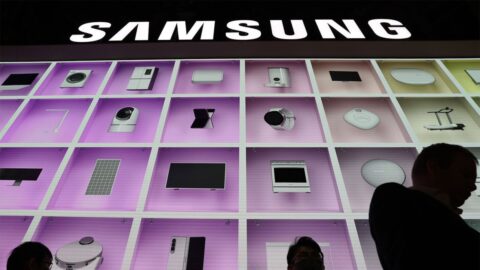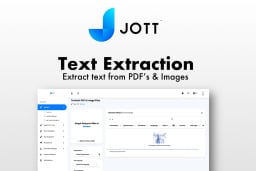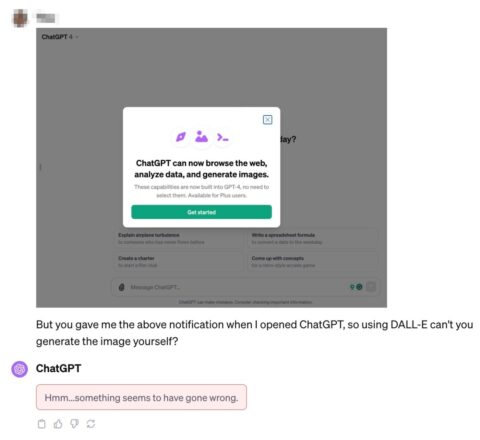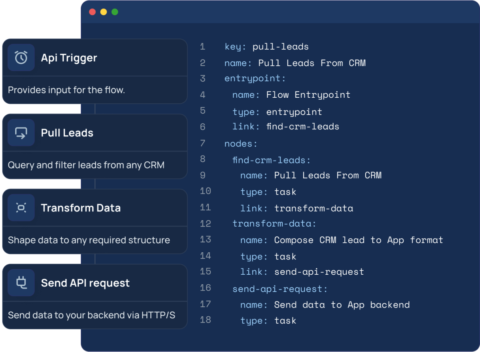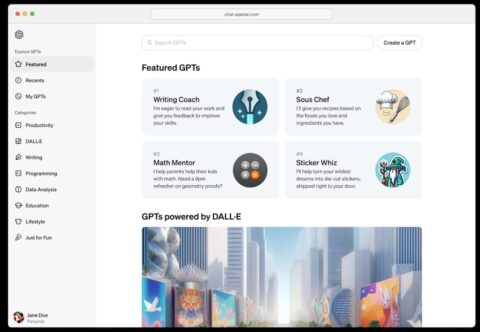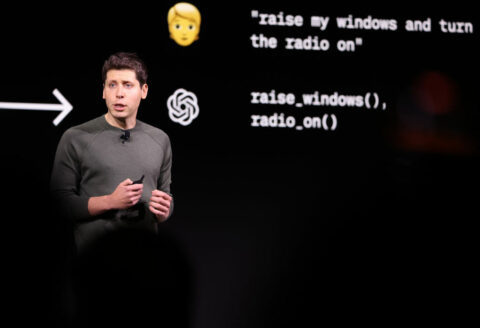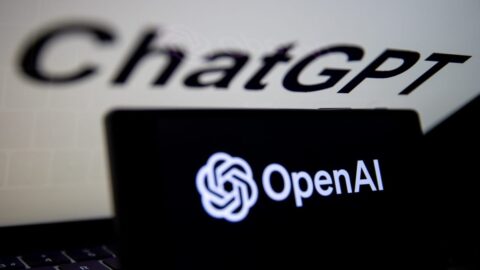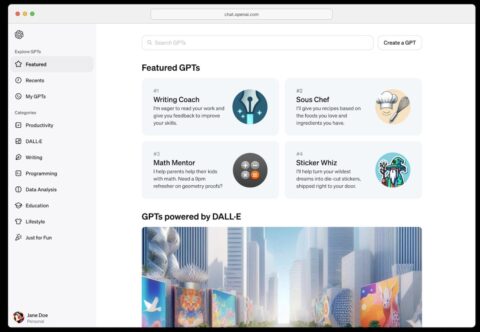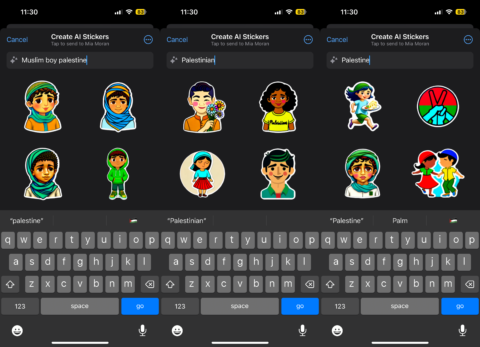Just a few days after OpenAI’s developer event, Samsung unveiled its own generative AI model, Samsung Gauss, at the Samsung AI Forum 2023. Samsung Gauss, developed by the […]
Best AI text and speech toolkit deal: 80% off
A lifetime license to the Jott Pro AI Text and Speech Toolkit is on sale for £32.82, saving you 80% on list price.

TL;DR: A lifetime license to the Jott Pro AI Text and Speech Toolkit is on sale for £32.82, saving you 80% on list price.
While humans have always led busy lives, it seems with the advancement of technology, we are expected to do more and more within a single day. So, any tips and tricks for saving time are most welcome. Wouldn’t it be lovely to have a way to cut out the tedious work of note-taking, transcribing, and translation so you might have a little extra time to relax?
With the AI boom already here (according to The Wall Street Journal), some things have changed for the better. The Jott Pro AI Text and Speech Toolkit is specialised software that could save you time when it comes to matters of text and speech, and a lifetime license is currently on sale for just £32.82 — and it has a lot of valuable capabilities.
If you consistently need to dictate emails or reports or take detailed notes during classes or meetings, Jott can help you. With its AI capabilities, Jott was made to transform any spoken word into written text without missing a beat.
Using state-of-the-art neural AI tech, this software can also turn any text into a high-quality, lifelike human voice, which is excellent for those with vision impairments. It can also save time by allowing you to listen instead of read while on the go.
Another helpful feature lets you extract images and text from files like PDFs, eliminating the need for manual transcription, as Jott converts it to editable text for you.
While this license is available on unlimited devices, this Jott Pro deal is only applicable to new customers. You’ll get 120 minutes of speech-to-text per month, 100,000 characters per month of text-to-speech, 100,000 characters per month for transcription, and 100,000 characters per month for translation, along with all of the Jott features.
This lifetime license includes updates and improvements as they become available, which help keep the tech you’re using current. Made to be user-friendly and highly accurate, it could be the difference between making it home in time for dinner and being stuck in the office.
Get a lifetime license to the Jott Pro AI text and speech toolkit for £32.82.

Opens in a new window
AI successfully negotiated a legal contract without human help
UK company Luminance successfully automated the review and negotiation of a legal contract, which could be a huge time-saver for lawyers.

In a groundbreaking moment, AI successfully negotiated a contract with…AI.
There were no real stakes involved, since it was a just a live demo, but artificial intelligence company Luminance just provided a glimpse of what the future might look like for the legal industry. On Tuesday, the UK-based company’s large language model (LLM) automated a contract negotiation “without human intervention, between two opposing parties.” Luminance claims this is the first completely AI-powered contract negotiation. The model was trained on 150 million legal documents to gain legal knowledge.
Industry-specific LLMs are one of the latest evolutions from generalist models like ChatGPT. Expect to see more of these customized AI models cropping up.
On Monday, OpenAI announced custom GPTs, which allow the user to build and train a model for their own purposes without any coding experience needed. GPTs are marketed towards ChatGPT users, but also ChatGPT Enterprise customers who use a private version of ChatGPT internally.
The benefit of using a bespoke model is not only data privacy, but also focused expertise for companies looking to automate tasks. Luminance, which does this for legal contracts, is aiming to cut down on hours lawyers spend negotiating terms.
Reviewing legal documents is a time-consuming process for lawyers. LLMs like Luminance’s proprietary legal-focused model, Autopilot, are able to understand and analyze massive amounts of information in a matter of seconds.
Automating the review of routine contracts like nondisclosure agreements could save legal professionals tons of time. “By putting the day-to-day negotiations in the hands of an AI that is legally trained and understands your business, we’re freeing lawyers up to focus their creativity where it counts,” said Jaeger Glucina, Luminance chief of staff, in the announcement.
This doesn’t mean there’s zero oversight. According to CBNC’s Ryan Browne, who saw the live demo, there’s a live log highlighting changes to clauses and suggested changes, so lawyers can review the process and double-check it for errors.
ChatGPT Plus users reporting issues since the DALL-E 3 upgrade
After an upgrade that integrated DALL-E 3 within ChatGPT, users are reporting issues.

ChatGPT users are struggling to generate images since OpenAI announced new updates.
An OpenAI spokesperson said all systems are fully operational, which matches up with its status monitoring site. Yet, reported problems spiked around 2 p.m. ET Tuesday, according to Down Detector (which is also owned by Mashable’s parent company Ziff Davis) and have continued to show high outage reports.
Mashable employees experienced errors in generating images around the same time. Users on the ChatGPT subreddit also reported issues. Several users pointed out that ChatGPT wouldn’t generate images despite the new integration with DALL-E 3.
Despite successfully generating images for Saira Mueller, a freelance editor who works with Mashable, last night, ChatGPT told her this afternoon that it didn’t have the capacity to generate images.
It then backpedaled after Mueller expressed her confusion and said it could, but didn’t actually generate anything. Instead, it mused about what to include in a prompt: “To create an image of a photorealistic landscape on another planet, please provide any specific details you’d like to include, such as the type of terrain, the presence of any celestial bodies in the sky, vegetation, or color scheme preferences.”
When Mueller followed up, it showed an error message.

Credit: Screenshot: Mashable / OpenAI
At OpenAI’s developer conference on Monday, CEO Sam Altman announced ChatGPT would be doing away with the model selection dropdown, which featured the DALL-E, internet browser, and plugins options. Instead these would all be integrated within the standard interface for ChatGPT Plus users.
Users with the updated integration are the ones experiencing the issues. It’s unconfirmed whether OpenAI has deployed the updates, causing the outages, but given the timeline announced by Altman yesterday, this would match up.
Mashable has reached out to OpenAI for more information and will update this story if it hears back.
Integration.app uses LLMs to connect apps and services together
Several years ago, Daniil Bratchenko, one of the first employees at DataRobot, the AI and data science platform, observed that enterprises adopting software-as-a-service (SaaS) apps experienced a perennial […]
Everything announced at OpenAI’s first developer event
OpenAI held its first developer event on Monday and it was action-packed. The company launched improved models to new APIs. Here is a summary of all announcements in […]
GPT-4 Turbo and custom GPTs announced: What they are, how to try them
At OpenAI’s first developer conference, Sam Altman introduced GPT-4 Turbo with a slew of new features and updates.

With its new model GPT-4 Turbo, OpenAI continues to pave the way for AI-powered possibilities.
On Monday at OpenAI’s very first developer conference, CEO Sam Altman announced the release of the new model. It has a context window of 128,000 tokens, meaning it can process around 300 pages of text in a single prompt and incorporates vision, text-to-speech, and DALL-E 3. Plus, it’s about a third cheaper than GPT-4.
Even if you’re not a developer directly using the API, you can experience the improvements right away through ChatGPT and a new way of creating custom GPTs without coding knowledge. Here’s what to know about GPT-4 Turbo and how to access it.
GPT-4 Turbo on ChatGPT
With the superpowered large language model, ChatGPT will be more accurate and useful. First of all, the cutoff date for ChatGPT’s knowledge has finally been updated to April 2023. Next, OpenAI has done away with the option to toggle between different models — GPT 3.5, GPT 4, internet browsing, plugins, and DALL-E 3 — and will automatically detect what to use based on the purpose of your prompt, so the interface is simpler and more intuitive. These updates are available to ChatGPT Plus users.
OpenAI also announced a new initiative called Copyright Shield. For ChatGPT Enterprise and the developer platform, OpenAI will defend its customers and pay the costs incurred if they face any copyright infringement claims.
The knowledge cutoff date, elimination of the model picker tool, and Copyright Shield are all live today.
Custom GPTs
Nudging closer to its dream of AGI (artificial general intelligence), OpenAI launched a platform for users to develop their own custom versions of ChatGPT. If that sounds vaguely familiar, that’s because it’s an evolved version of ChatGPT plugins, but now with more capabilities.
Users can experiment with pre-existing custom GPTs like ones for creating your own designs on Canva or automating tasks with Zapier, or they can create their own chatbot without any coding knowledge. GPTs are designed to understand natural language, so all you need is an idea and some instructions to build your very own AI agent.
Later this month, OpenAI will launch a GPT Store, so users can create and browse custom GPTs, much like an app store. So yes, you’ll also be able to make money off your GPT.
ChatGPT Plus and Enterprise users can access example GPTs today, with access expanding to more users eventually.
OpenAI’s ChatGPT now has 100 million weekly active users
ChatGPT now has 100 million weekly active users, OpenAI CEO Sam Altman announced on Monday at the company’s first developer conference in San Francisco. The service released nearly […]
App Store for AI: Build your own GPT and sell it on OpenAI’s GPT Store
OpenAI took the leash (and the “Chat”) off ChatGPT today with the announcement of GPTs, a way for anyone to build their own version of the popular conversational […]
WhatsApp under fire for AI-generated sticker responses to ‘Palestine’
When users search for “Palestine” on Meta-owned WhatsApp, the AI-generated stickers return biased images.

Earlier this year, Meta-owned WhatsApp started testing a new feature that allows users to generate stickers based on a text description using AI. When users search “Palestinian,” “Palestine,” or “Muslim boy Palestine,” the feature returns a photo of a gun or a boy with a gun, a report from The Guardian shows.
According to The Guardian‘s Friday report, search results vary depending on which user is searching. However, prompts for “Israeli boy” generated stickers of children playing and reading, and even prompts for “Israel army” didn’t generate photos of people with weapons. That, compared to the images generated from the Palestinian searches, is alarming. A person with knowledge of the discussions that The Guardian did not name told the news outlet that Meta’s employees have reported and escalated the issue internally.
“We’re aware of this issue and are addressing it,” a Meta spokesperson said in a statement to Mashable. “As we said when we launched the feature, the models could return inaccurate or inappropriate outputs as with all generative AI systems. We’ll continue to improve these features as they evolve and more people share their feedback.”
It is unclear how long the differences spotted by The Guardian persisted, or if these differences continue to persist. For example, when I search “Palestinian” now, the search returns a sticker of a person holding flowers, a smiling person with a shirt that says what looks like “Palestinian,” a young person, and a middle-aged person. When I searched “Palestine,” the results showed a young person running, a peace sign over the Palestinian flag, a sad young person, and two faceless kids holding hands. When you search “Muslim boy Palestinian,” the search shows four young smiling boys. Similar results are shown when I searched “Israel,” “Israeli,” or “Jewish boy Israeli.” Mashable had multiple users search for the same words and, while the results differed, none of the images from searches of “Palestinian,” “Palestine,” “Muslim boy Palestinian,” “Israel,” “Israeli,” or “Jewish boy Israeli” resulted in AI stickers with any weapons.
There are still differences, though. For instance, when I search “Palestinian army,” one image shows a person holding a gun in a uniform, while three others are just people in uniform; when I search “Israeli army,” the search returns three people in uniform and one person in uniform driving a military vehicle. Searching for “Hamas” returns no AI stickers. Again, each search will differ depending on the person searching.
This comes at a time in which Meta has come under fire for allegedly shadowbanning pro-Palestinian content, locking pro-Palestinian accounts, and adding “terrorist” to Palestinian bios. Other AI systems, including Google Bard and ChatGPT, have also shown significant signs of bias about Israel and Palestine.
